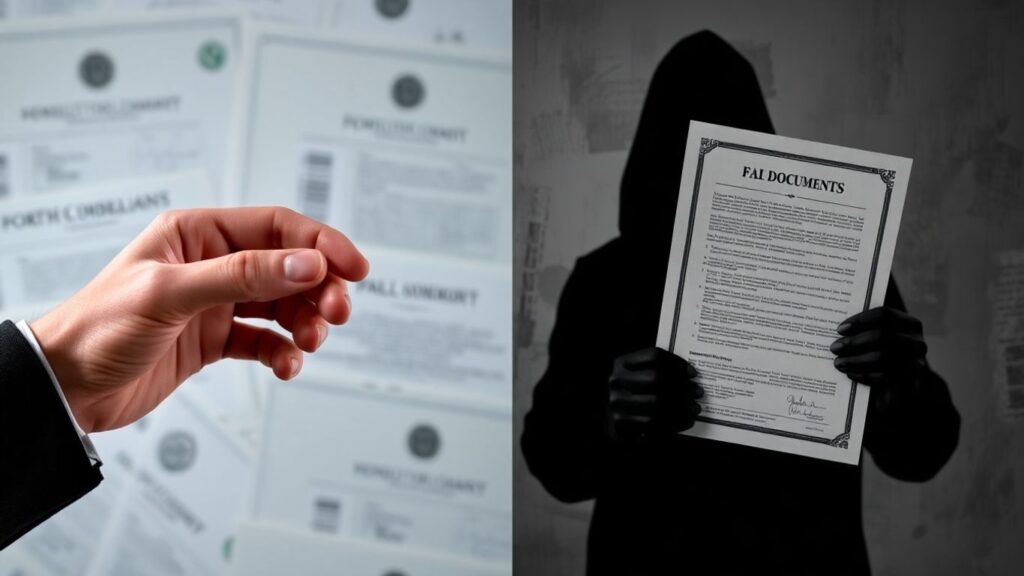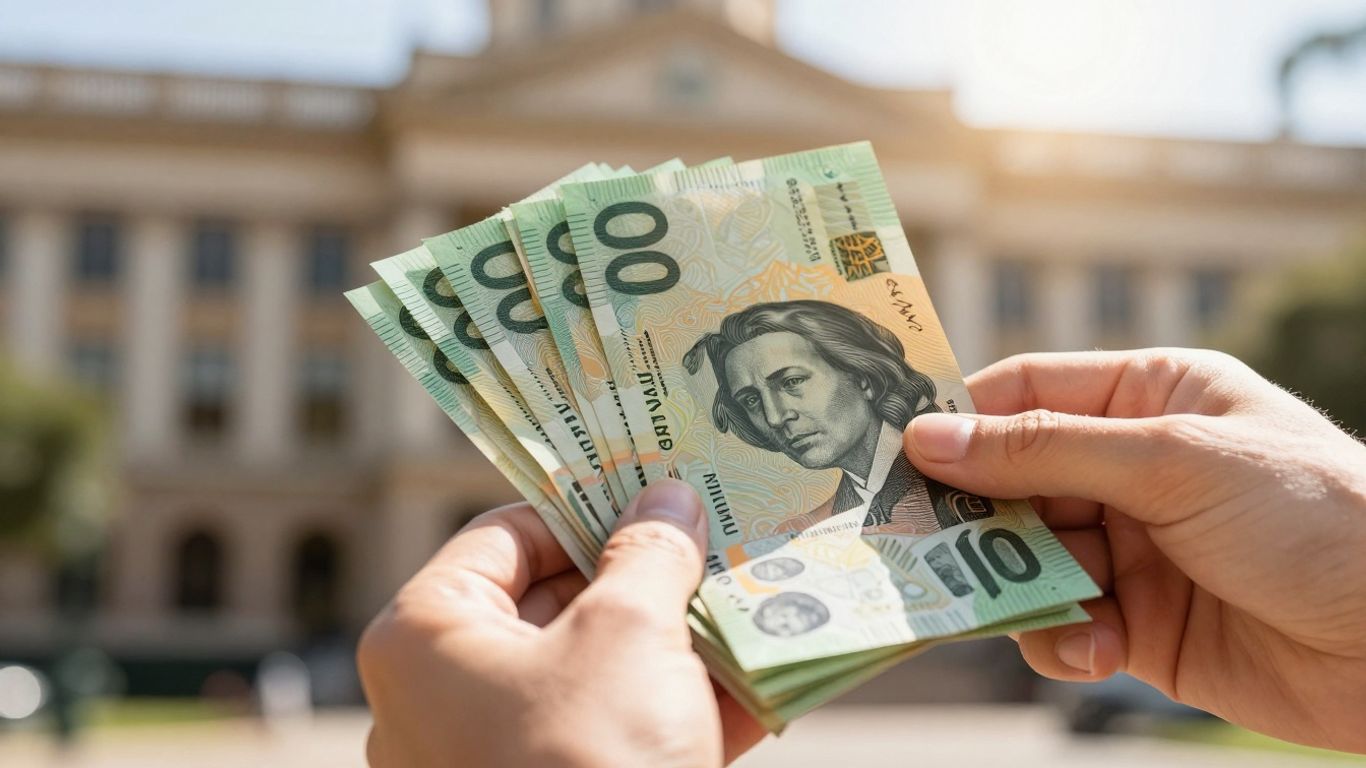So, you’ve heard about the DHHS grant, maybe seen an ad or got an email saying you could get some free cash. It sounds great, right? But before you get too excited, it’s worth stopping and thinking. In 2025, there are a lot of people out there trying to pull a fast one, especially when it comes to government money. This article is all about figuring out what’s real and what’s a scam, so you don’t end up losing your hard-earned cash. We’ll look at how to spot the fakes and where to find the genuine opportunities, because, yes, some real grants do exist. But you need to know where to look and what to watch out for.
Key Takeaways
- Government grants are not ‘free money’ handed out for personal needs like bills or repairs. Real grants have specific purposes and require applications.
- If someone contacts you out of the blue about a grant, especially asking for personal or financial details or money upfront, it’s almost certainly a scam.
- Scammers often try to look official, using fake agency names or spoofed phone numbers, and they’ll ask for payment via gift cards, wire transfers, or cryptocurrency.
- The official place to find federal grants is Grants.gov. This is a free resource, and no government agency will charge you to apply or receive a grant.
- If you think you’ve been scammed, report it immediately to the FTC at ReportFraud.ftc.gov and contact the financial institution you used to send money.
Understanding Government Grants: Is The DHHS Grant Real?

Right then, let’s talk about these government grants, specifically the DHHS one that’s been floating around. You see ads or get emails promising free money, and it sounds a bit too good to be true, doesn’t it? Well, usually, it is. The Department of Health and Human Services (DHHS) does offer grants, but they’re not just handed out to anyone who asks. They’re for specific projects and organisations, not for your personal bills or a new car.
What To Know About Government Grants
Government grants are essentially funds given by the federal government to support projects that benefit the public. Think research, community programs, or disaster relief. They’re not a magic money tree. The government won’t just call you up out of the blue offering cash. If you hear about a grant, especially one that sounds like it’s for personal use, be very suspicious. Real grants require a formal application process, and they’re always tied to a specific purpose. You can find legitimate opportunities on official government websites like grants.gov.
The Truth About ‘Free Money’ Offers
Anyone promising you ‘free money’ from the government, especially if they ask for personal details or an upfront fee, is likely trying to pull a fast one. These scams prey on people’s hopes. They might claim you’ve been approved for a grant but need to pay a processing fee or provide your bank details to receive it. This is a classic scammer tactic. Remember, legitimate government agencies don’t operate this way. They won’t ask for your bank account number to deposit funds or request payment via gift cards or wire transfers.
Identifying Authentic Grant Opportunities
So, how do you spot the real deal? Firstly, government agencies rarely initiate contact about grants. You usually have to seek them out. Secondly, authentic grants are for specific, often public-service-oriented, purposes. They aren’t for personal expenses like paying off debt or buying a house. Finally, if something sounds too easy or too good to be true, it probably is. Always verify information through official government channels. If you’re unsure, it’s always best to err on the side of caution.
Scammers often try to look official. They might use official-sounding names or even fake government phone numbers. Don’t be fooled by a convincing appearance; always check the source independently.
Here’s a quick rundown of what to watch out for:
- Unsolicited Contact: You receive calls, emails, or social media messages about a grant you didn’t apply for.
- Up-Front Fees: You’re asked to pay a fee to receive the grant money or to get a list of grants.
- Personal Expenses: The grant is advertised for personal needs like paying bills, buying a car, or home repairs.
- Unusual Payment Methods: You’re asked to pay fees using gift cards, wire transfers, or cryptocurrency.
Recognising Common Grant Scams
How Government Grant Scammers Try To Trick You
These blokes are pretty crafty, aren’t they? They’ll try all sorts of tricks to get you to hand over your hard-earned cash or personal details. You might see ads pop up online, or get a call where your caller ID looks legit – like it’s from a government department. Sometimes it’s a text, an email, or even a message on social media, all saying you’re in line for some ‘free money’. They’ll promise grants for all sorts of things: fixing up your house, paying for school, starting a business, or even just covering your bills. It sounds great, but it’s usually a load of rubbish.
Red Flags of Imposter Scams
Keep an eye out for these warning signs. If any of these pop up, it’s time to be suspicious:
- They contact you out of the blue: Real government agencies won’t ring, text, email, or message you on social media to offer grants. They just don’t operate like that.
- They ask for personal or financial info upfront: If someone asks for your Social Security number, bank account details, or credit card numbers to ‘check your eligibility’ or ‘deposit funds’, run a mile. Legitimate grants don’t work that way.
- They demand payment for a grant: You should never have to pay a fee to get a grant. If they ask for money to ‘process’ your application or ‘release’ the funds, it’s a scam.
- They insist on unusual payment methods: Scammers love gift cards, wire transfers, cryptocurrency, or cash reload cards. Government agencies will never ask you to pay using these methods.
Promises That Sound Too Good To Be True
If something sounds like it’s a bit too easy or a bit too good to be true, it probably is. Scammers will often make grand promises, like ‘guaranteed’ grants or ‘free money’ with no strings attached. They might even claim they can get you a refund if you’re not happy, but that’s just another lie to get you hooked. Remember, genuine grants are usually for very specific purposes and always require a proper application process. They aren’t just handed out to anyone who asks.
The key thing to remember is that the government doesn’t just give away money for nothing. If someone is pushing you to act fast, pay them money, or give them your personal details, it’s almost certainly a scam. Take a deep breath and step away from the offer.
Protecting Yourself From Fraudulent Schemes
Look, nobody wants to get ripped off. Especially when it comes to money that could actually help you out. Scammers are pretty slick these days, and they’re always coming up with new ways to try and get your hard-earned cash. So, it’s super important to know what to watch out for.
Never Share Personal Or Financial Information
This is probably the biggest one. Government agencies, like the DHHS or any other official body, will never call you out of the blue, send you a text, or slide into your DMs asking for your bank account details, your Social Security number, or your credit card information. If someone contacts you claiming to be from a government department and asks for this stuff, it’s a massive red flag. They might say it’s to ‘verify your identity’ or to ‘deposit your grant money,’ but it’s all a trick. Once they have that info, they can do some serious damage, like drain your accounts or even steal your identity. So, just don’t give it out. Ever.
Beware Of Up-Front Fees And Payment Methods
Another classic scammer move is asking for money upfront. Real grants don’t work like that. You won’t have to pay a fee to get a grant, and you certainly won’t have to pay to get a list of available grants. The official place for federal grants in the US, for example, is Grants.gov, and that’s free to use. If someone tells you there’s a processing fee, an ‘insurance’ payment, or any other kind of charge before you can receive grant money, run a mile. They’ll also try to get you to pay in ways that are hard to trace or get your money back from. Think gift cards, wire transfers, or cryptocurrency. These are all big no-nos.
Here’s a quick rundown of dodgy payment requests:
- Gift cards (like iTunes, Google Play, or Steam cards)
- Wire transfers (like Western Union or MoneyGram)
- Cryptocurrency (like Bitcoin)
- Prepaid debit cards or cash reload cards
How To Avoid Government Grant Scams
Avoiding these scams is all about being a bit savvy and knowing the signs. It’s not rocket science, but it does take a bit of common sense.
- Be Skeptical of Unsolicited Contact: If you didn’t apply for anything and someone contacts you about a grant, be suspicious. Government agencies don’t cold-call people about free money.
- Verify Everything: If you think a grant might be legitimate, don’t trust the contact details they give you. Go to the official government website yourself and look for contact information there. Or, if they claim to be from a specific agency, search for that agency online and call their official number.
- Never Pay to Receive Money: This is a golden rule. You should never have to pay money to get money. If someone asks for an upfront fee, it’s a scam.
- Check Official Sources: For federal grants in the US, Grants.gov is the place to go. For other countries or state-level grants, look for their official government grant portals.
Scammers often try to create a sense of urgency, pushing you to act fast before you have time to think. They might say the grant money is limited or that you need to pay a fee immediately to secure it. Always take a breath and think things through before handing over any personal details or money.
Remember, if it sounds too good to be true, it almost certainly is. Stay alert, and keep your money safe.
Navigating Official Grant Applications

So, you’ve heard about grants and you’re wondering how to actually get one. It’s not like someone’s going to just hand you a cheque in the mail, that’s for sure. Real government grants, the ones that actually exist and aren’t scams, have a proper process. You can’t just stumble upon them; you need to know where to look and what to expect.
The Role Of Grants.gov
Think of Grants.gov as the central hub for all federal grants in the US. It’s the official place where government agencies post their funding opportunities. If you’re looking for legitimate federal grant money, this is where you’ll find it. It’s a massive database, so it can feel a bit overwhelming at first, but it’s the most reliable source out there. Don’t pay anyone for a list of grants; the official list is free on Grants.gov.
Real Government Grants Require Applications
This is a big one. No legitimate government grant is just given out without a thorough application process. Scammers will try to tell you it’s easy, that you just need to provide some personal details or pay a small fee. That’s not how it works. You’ll need to fill out forms, provide documentation, and explain exactly how you plan to use the funds. It takes time and effort, but that’s the price of real funding.
Here’s a general idea of what you might need:
- Proof of Identity: Like a driver’s licence or passport.
- Financial Information: Bank statements, tax returns, or business plans, depending on the grant.
- Project Proposal: A detailed explanation of your project or need.
- Supporting Documents: Anything that backs up your application.
Specific Purposes For Authentic Grants
Government grants aren’t just random handouts for whatever you fancy. They’re usually tied to very specific goals that align with government initiatives. This could be anything from research and development, community projects, educational programs, disaster relief, or support for small businesses in certain sectors. They’re designed to achieve something concrete, not just to put money in your pocket.
Remember, if an offer sounds too good to be true, it almost certainly is. Government agencies are focused on public service and specific outcomes, not on making unsolicited offers of ‘free money’. Always go to the official source.
For example, a grant for small businesses might be specifically for businesses in rural areas looking to adopt new technology, or a grant for education might be for developing new STEM programs in underserved schools. They have a purpose, and your application needs to show how you fit that purpose.
What To Do If You Encounter A Scam
So, you’ve realised you’ve stumbled across a scammer pretending to be from DHHS or some other government outfit. Don’t beat yourself up about it; these blokes are pretty good at what they do. The most important thing now is to act fast. The sooner you take action, the better your chances of recovering any money or protecting your personal details.
If You Paid A Scammer, Act Quickly
If you’ve handed over any cash, whether it was for ‘processing fees’, ‘insurance’, or anything else the scammer cooked up, you need to get in touch with the place you sent the money from straight away. This could be your bank, a gift card company, a money transfer service, or even a cryptocurrency exchange.
- Contact your bank: If you used your debit or credit card, or made a direct transfer, tell your bank immediately. They might be able to stop the transaction or reverse it.
- Gift cards and reloadable cards: If you bought a gift card or a reloadable card and gave them the numbers, contact the company that issued the card. Explain it was a fraudulent transaction and ask if they can help.
- Money transfer services: Services like Western Union or MoneyGram are often used by scammers. If you used one, contact them immediately. It’s harder to get money back this way, but it’s worth a shot.
- Cryptocurrency: If you sent crypto, reach out to the exchange you used. Again, getting money back from crypto is tricky, but reporting it is still important.
Scammers often ask for payment in ways that make it really difficult to get your money back. They know this. That’s why they push for gift cards, wire transfers, or crypto. Don’t fall for it.
Reporting Government Grant Scams
Even if you haven’t lost money, it’s a good idea to report these scams. This helps authorities track down the scammers and prevent others from falling victim. Here’s where you can report them:
- Australian Competition and Consumer Commission (ACCC): You can report scams to the ACCC via their website. They collect scam reports to help them understand what scams are happening and how to warn people.
- Australian Cyber Security Centre (ACSC): If you’ve been targeted by a cyber scam, the ACSC is another place to report it.
- Your local police: For serious fraud or identity theft, you might need to file a police report.
Where To Find Help And Information
It’s easy to feel embarrassed or ashamed if you’ve been scammed, but remember, these scammers are professionals. You’re not alone, and there are resources available to help.
- Scamwatch (ACCC): This is a great resource for learning about current scams and how to protect yourself. They have heaps of information on their website.
- IDCARE: If you’re worried about your personal information being compromised, IDCARE is a not-for-profit organisation that can help you manage identity theft or fraud.
- Consumer protection agencies: Your state or territory consumer affairs or fair trading agency can offer advice and assistance.
So, Is the DHHS Grant Real? The Bottom Line
Look, when it comes to government grants, especially ones that sound too good to be true, like free money just showing up in your account, you’ve got to be sharp. Most of the time, if someone’s contacting you out of the blue about a grant, asking for personal details or upfront fees, it’s a scam. Real grants, like those from the DHHS or other government bodies, aren’t handed out like lollies. You usually have to apply, and they’re for specific projects, not just paying your bills. Always go straight to the official government websites, like grants.gov, to find out what’s legit. If you’ve been targeted, report it. Staying informed is your best defence against these dodgy operators.
Frequently Asked Questions
Are there really grants from the government that I can just get for free?
Nah, mate. If someone’s offering you ‘free money’ from the government for things like fixing up your house or paying bills, it’s almost always a scam. Real government grants aren’t just handed out like lollies. They’re for specific projects and you have to apply for them properly.
How do I know if a grant offer is dodgy?
Watch out for promises that sound too good to be true, like a heap of free cash with no strings attached. Scammers will often try to rush you, ask for personal details like your bank account number or Social Security number right away, and want you to pay them with gift cards or wire transfers. That’s a big red flag!
What’s the best way to find real government grants?
The official place to look for all government grants is a website called Grants.gov. It’s free to use, and you can find out about grants that are actually available. Government agencies won’t cold-call, text, or email you out of the blue offering grants.
What should I do if someone asks me to pay a fee to get a grant?
Never, ever pay a fee to get a grant. Real government grants don’t require you to pay anything upfront. If someone asks for money to ‘process’ your grant or to get you a list of grants, it’s a scam. Remember, the list on Grants.gov is free.
What if I’ve already given money or personal details to a scammer?
Act fast! If you’ve sent money, contact the company you used (like the gift card or money transfer service) straight away and tell them it was a scam. Try to get them to reverse the transaction. If you’ve given personal info, keep a close eye on your bank accounts and credit reports for any suspicious activity.
Where can I report a grant scam if I see one?
You can dob them in! Report any grant scams you come across to the Australian Competition and Consumer Commission (ACCC) or the Australian Cyber Security Centre. You can also report it to Scamwatch. This helps them track down scammers and warn others.





